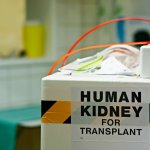
News • OrQA
Transplant organ quality assessment via AI: a promising approach
A pioneering new method to assess the quality of organs for donation has the potential to revolutionise the transplant system, saving lives and tens of millions of pounds.

A pioneering new method to assess the quality of organs for donation has the potential to revolutionise the transplant system, saving lives and tens of millions of pounds.
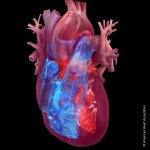
Donor hearts from people who were Covid-19-positive appear to be as safe for transplantation as those from people without Covid-19, according to a new short-term analysis.

Despite treatment, chronic lung diseases such as COPD or cystic fibrosis can become so severe that a lung transplant is necessary. Dr Urte Sommerwerck explains which patients might be considered for transplantation and why follow-up is as important as the surgery itself.
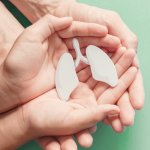
Researchers at Lund University in Sweden and Skåne University Hospital have conducted an animal study bringing hope that more donor lungs could be used in the future.
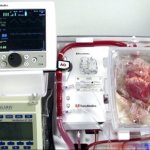
A new heart transplant technique, which allows surgeons to transplant donor hearts that have stopped beating after death, is reducing waiting lists for patients in Australia and potentially around the world.
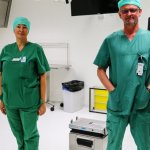
An animal study brings hope that more donor lungs could be used in the future. The researchers have launched a pilot study to investigate whether the treatment will have the same positive effects on human beings.
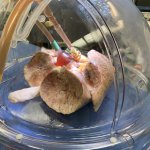
A new study has proved that it is possible to convert blood type safely in donor organs intended for transplantation. This is an important step towards creating universal type O organs.

The first investigational transplantation of a genetically engineered, nonhuman kidney to a human body was recently completed at NYU Langone Health—marking a major step forward in potentially utilizing an alternative supply of organs for people facing life-threatening disease.

A European comparative study has evaluated national organ donation policies in seven countries from an ethical perspective. For the first time, knowledge and attitudes towards organ donation regulations in different European countries were investigated in combination. The study was published in the journal PLOSone.
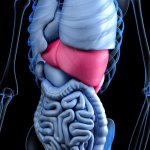
Handheld laser devices that help surgeons quickly spot liver damage could transform transplant procedures, research suggests. The non-invasive technique could provide medical staff with instant data on the health of donor livers and help them to identify which organs are suitable for transplant. If widely adopted, the light-based tool could allow more livers to be transplanted safely and…
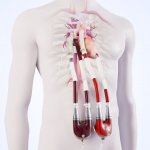
With the first-in-man implantation of the Berlin Heart Venous Cannula at the LMU University Hospital Munich, Germany, Berlin Heart offers patients with a failing Fontan circulation a unique chance to survive the waiting time for a donor heart. These patients are in a life-threatening condition: their health has deteriorated so much that they desperately need a new heart, but because of their poor…

Scientists suggest a new strategy that uses induced pluripotent stem cells (iPSCs) to regulate immune reaction to transplanted tissues. The team, led by Professor Ken-ichiro Seino of Hokkaido University’s Institute for Genetic Medicine, found that thymic epithelium cells derived from mouse induced pluripotent stem cells (iPSCs) can regulate immune response to skin grafts, extending their…
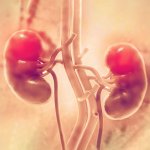
New research indicates that subtle structural features of donated kidneys from living donors may predict the risk of kidney transplant failure in recipients. The findings, which appear in an upcoming issue of JASN, may help clinicians as they evaluate the quality of organs at the time of transplantation. The quality of donated kidneys obtained from living donors is often inferred from their age,…
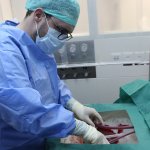
Researchers from the University Hospital Zurich, ETH Zurich, Wyss Zurich and the University of Zurich have developed a machine that repairs injured human livers and keeps them alive outside the body for one week. This breakthrough may increase the number of available organs for transplantation, saving many lives of patients with severe liver diseases or cancer. Until now, livers could be stored…

The safety of blood transfusions is questioned again and again by the mass media. Sometimes ‘bad’ blood causes infections; sometimes a transfusion leads to cancer years later. The fact is that transfer blood is subjected to the highest safety standards – there are very clear statutory regulations. Nonetheless, there will be shortages of ‘life’s fluid’ because, given increasing…
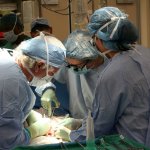
The consequences of organ rejection in transplant patients can be devastating. Professor A. Vathsala, co-director of the National University Centre for Organ Transplantation at the National University Hospital (NUH) and professor of medicine, says that between 30 percent to 40 percent of kidney transplants are lost over time to rejection. She and Associate Professor Paul MacAry of the Department…

‘Do we want transplant medicine? And if yes, what are we prepared to change in public policy, society and medicine?’ This question characterises the current situation within this medical discipline. Since the 2011 transplant scandal, there has been a steady decline in organ donations according to the German Foundation for Organ Donation (DSO). Although there were some 1,200 transplant donors…

New research indicates that many kidneys obtained for transplantation from deceased donors are not being used because of biopsy findings despite their unreliability and reproducibility. The findings, which appear in an upcoming issue of the Clinical Journal of the American Society of Nephrology (CJASN) and will be published at ASN Kidney Week 2018, may suggest an urgent need to re-examine the…

A UT Southwestern study in mice provides new clues about how a class of anti-rejection drugs used after organ transplants may also slow the progression of early-stage Alzheimer’s disease. Alzheimer’s, a progressive form of dementia, affects an estimated 5 million people in the U.S. – a number expected to nearly triple by 2050. Although Alzheimer’s usually strikes after age 65, changes in…